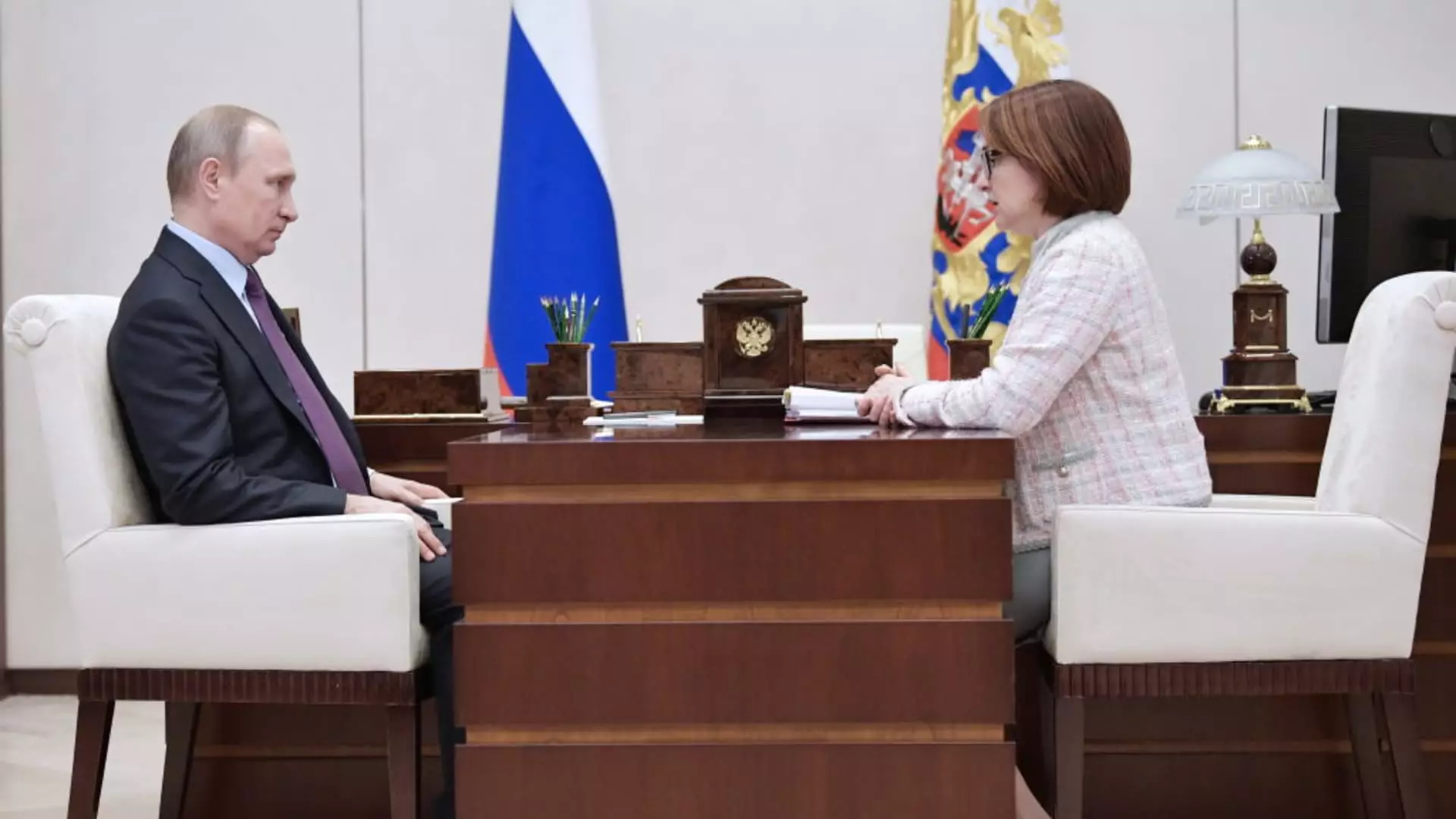Russia’s rising inflation and plunging currency have revealed a growing disagreement between the Kremlin and the country’s central bank. This discord came to light when the Central Bank of Russia (CBR) raised interest rates at an emergency meeting in an effort to stabilize the rapidly depreciating ruble. However, President Vladimir Putin’s economic advisor penned an op-ed blaming the central bank for the inflation and currency troubles. This article delves into the underlying causes of Russia’s economic challenges and examines the differing perspectives between the Kremlin and the central bank.
The Central Bank of Russia announced an emergency rate hike of 350 basis points to 12% to curb price stability risks caused by building inflationary pressure. Over the last three months, the country’s inflation has averaged 7.6% on a seasonally adjusted basis, with core inflation rising to 7.1%. According to the central bank’s board, steady growth in domestic demand exceeding the capacity to expand output has intensified inflationary pressure and affected the ruble’s exchange rate dynamics through increased demand for imports.
The central bank had initially attributed the inflation and currency frailties to the country’s shrinking balance of trade, which saw a decline of over 85% from January to July. However, President Putin’s economic advisor criticized the central bank for its loose monetary policy and argued that it had the necessary tools to normalize the situation. This difference in perspective highlights the conflicting views on the root causes of Russia’s currency troubles.
Analysts argued that Western sanctions played a significant role in Russia’s economic challenges. Agathe Demarais, global forecasting director at the Economist Intelligence Unit, explained that these sanctions curbed the country’s hydrocarbon export revenues and inflated import costs. The weakening ruble further exacerbated these trends, creating a vicious circle that is difficult to escape from. The article suggests that blaming the central bank has become an easy tactic for the Kremlin in the absence of tangible options to improve the situation.
In response to the currency depreciation, the central bank implemented capital controls and halted foreign currency purchases on the domestic market. However, these measures failed to stabilize the ruble. News outlets reported that Russian authorities are considering reintroducing capital controls, including compulsory sales of foreign currency revenues for exporters. The article predicts that doubling down on capital controls and enforcing the rule that exporters must exchange their earnings into rubles is the likely scenario. This move aims to address the relative flow of exports and imports, which has contributed to the devaluation of the ruble.
The article highlights the challenges faced by the Russian government in balancing inflation and growth, both of which are crucial for social stability. While higher interest rates may help stabilize the ruble, they could also harm consumers and local businesses. Therefore, the article suggests that the central bank is unlikely to implement aggressive interest rate hikes. Instead, the introduction of stricter capital controls and export regulations is expected. The uncertainty surrounding the outlook for the ruble and Russia’s economy remains high.
The rising inflation and currency woes in Russia have intensified the discord between the Kremlin and the central bank. While the central bank attributes the challenges to the shrinking balance of trade, President Putin’s economic advisor criticizes the bank’s loose monetary policy. The impact of Western sanctions on Russia’s hydrocarbon export revenues and import costs further contributes to the currency depreciation. The article predicts that the government will tighten capital controls and enforce regulations on exporters to address the devaluation of the ruble. However, the uncertainty surrounding the economic outlook remains significant.


Leave a Reply